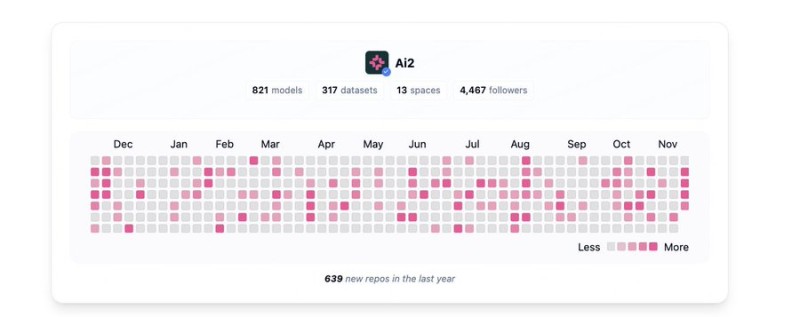⬤ AllenAI launched Olmo-3, a fully open-source model family that comes with everything researchers need: code, model weights, and comprehensive training documentation, all under Apache 2.0 licensing. This release reflects the organization's growing presence in the open research space, with an expanding repository and steady stream of contributions. It's another reminder that AllenAI remains one of the most transparent research institutions working in AI today.

⬤ The timing matters because open-source AI is gaining real traction across the industry. AllenAI now maintains more than 800 models and over 300 datasets, showing serious commitment to keeping scientific tools accessible. While major commercial labs lock their systems behind closed doors, Olmo-3 ships with reproducibility materials, training details, and permissive licensing that lets anyone use it for research or commercial projects. The AI community's response shows that people are noticing AllenAI's work in pushing quality open research forward.
⬤ There's a bigger shift happening too. As proprietary models increasingly hide behind API-only access, organizations are looking toward platforms like AllenAI that offer fully open resources you can actually inspect, fine-tune, and deploy yourself. The project created over 600 new repositories in just the past year, demonstrating the pace of AllenAI's output and its growing influence in the open-source world. Industry watchers see this kind of productivity as foundational to global AI research.
⬤ Olmo-3 matters because it strengthens the open-source ecosystem right when transparency and accountability are becoming dealbreakers in AI development. Well-documented, openly available model families can shift competitive dynamics, change how enterprises approach adoption, and speed up research across the board. As open infrastructure becomes essential rather than optional, releases like Olmo-3 are setting new standards for what accessibility and openness should look like in the industry.
 Peter Smith
Peter Smith

 Peter Smith
Peter Smith


